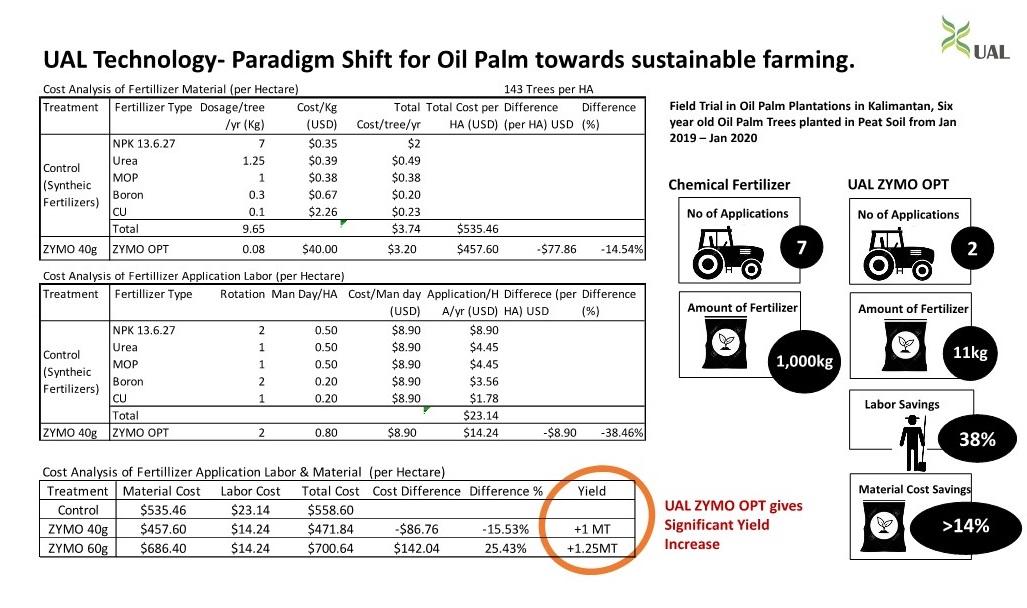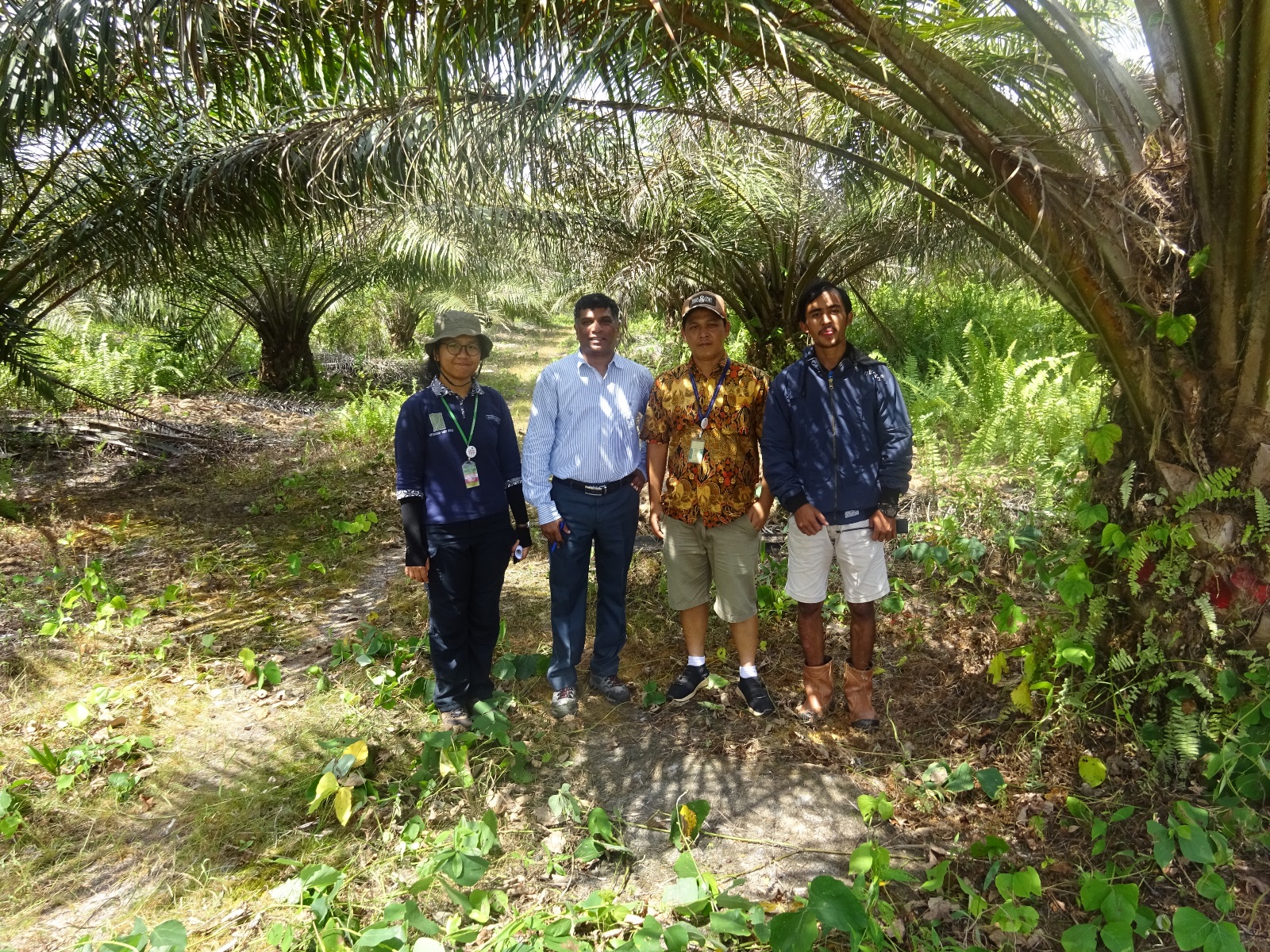UAL Biotech’s bio-innovation aims to be an alternative to chemical fertiliser farming to help mitigate greenhouse gas emissions at farms.
UAL Biotech works towards providing a clean environment and safe, affordable organic food for all. With food production being heavily reliant on factors such as weather patterns and temperature, climate change is exacerbating the trade-off between high-yield food production and its greenhouse gas (GHG) emissions. Addressing this trade-off is key to creating a sustainable future for the next generation.
Public discourse on climate change often fails to acknowledge the impacts caused by nitrous oxide. Data shows that nitrous oxide has a significantly larger impact than carbon dioxide, with 1 metric ton of nitrous oxide equivalent to 300 metric tonnes of carbon dioxide emissions (IPCC 2014). The problem is aggravated by agricultural policies which subsidise chemical fertilisers, disincentivising newer technologies. Any viable solution to mitigate climate change must include an industry-wide reduction in nitrous oxide emissions.
Chemical-free alternative
To tackle the main source of GHG emissions in the agriculture business, UAL developed a bio-solution as an alternative to chemical fertiliser farming without compromising cost and yield. For certain crops, UAL has achieved results where cost is lower and yield is higher compared to chemical fertiliser farming.

UAL Technology: Paradigm shift for oil palm towards sustainable farming
UAL has since completed various toxicology and bio-efficacy trials in agronomically different locations in India, Indonesia and the Philippines and commercialised the technology, becoming profitable in 2020. UAL now looks to scale up both production and revenue in its chosen markets.
Collaboration with PT Triputra Agro Persada Group
In 2019, UAL collaborated with PT Triputra Agro Persada Group, one of Indonesia’s largest agricultural players, to help the latter transition from chemical to sustainable organic farming.
Under this initiative, UAL aimed to convert 25,000 acres of conventional palm plantations using chemical fertilisers to sustainable scalable organic farms while maintaining input price and output yield. This would translate to the removal of 40,000 metric tonnes of e-carbon equivalent reduction in GHGs.
Beyond environmental benefits
Food produced using UAL products are chemical-free and organic. This means that using UAL products resolves the following issues caused by chemical fertilisers and pesticides:
- GHG emissions
- nitrogen and phosphorus leaching
- soil and biodiversity degradation
In essence, harmful chemical fertilisers and pesticides have been removed from the farming process. This ensures that water and other resources washed away in the agricultural process break down without contaminating water bodies and the life in them.
Removing chemical fertilisers from agricultural practices also benefits the supply chain, from workers to consumers. Chemical-free products eliminate workers’ exposure to harmful chemicals and their known and unknown short- and long-term side effects.
Current practices used in the farm to produce organic products are costly and yield much less than non-organic products. By matching the cost of farming organic products with that of non-organic products, consumers have access to both options at the same price. Consumers are thus enabled to choose climate-friendly organic food without additional financial constraints.

UAL Biotech is a Singapore-based company focused on converting chemical fertiliser-based conventional farms into high-yielding sustainable organic farms, mitigating climate change through carbon sequestration and reduction of the greenhouse gas, nitrous oxide.
UAL’s mission is to contribute to a clean environment while providing safe, affordable organic food. UAL has developed innovative technologies to make food source sectors, namely, Agriculture, Aquaculture and Animal Farms, produce safe and sustainable by enabling the removal of harmful chemicals, antibiotics and growth hormones.
Learn more about UAL Biotech through their website. To collaborate or connect, reach out directly to our SL25 team.
Connect














